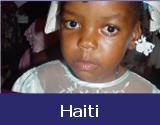 |
Contact usUnited Caribbean TrustConservation - landIn memory ofConservation - sea
Endangered species
Turtle stories |
home >> caribbean >> caribbean
ecotourism>> caribbean
conservation>>
CPACC Project Organisation  The
Project is funded by the Global Environment Facility (GEF), implemented
by the World Bank and executed by the Organisation of American States. The
project is coordinated in the Caribbean through the Regional Project Implementation
Unit (RPIU), which was established by the UWI Centre for Environment and
Development (UWICED). A Policy Advisory Committee chaired by CARICOM, provides
overall guidance for implementation of activities. The
Project is funded by the Global Environment Facility (GEF), implemented
by the World Bank and executed by the Organisation of American States. The
project is coordinated in the Caribbean through the Regional Project Implementation
Unit (RPIU), which was established by the UWI Centre for Environment and
Development (UWICED). A Policy Advisory Committee chaired by CARICOM, provides
overall guidance for implementation of activities.
Project Objectives
Project Description The project will follow a regional approach; it will be executed through the cooperative effort of all twelve participating countries and through a combination of national pilot/demonstration actions and regional training and technology transfer linked to adaptation planning. This approach seeks to strengthen regional cooperation and institutions, and to provide cost-effective means for adaptation planning, data collection, and sharing of information, skills, and project benefits. The project will seek to build on existing institutions and experiences, and to liaise with other important regional initiatives and programs underway in the Caribbean. Project activities will focus on planning for adaptation to GCC in vulnerable areas, including regional sea/climate data collection and management, impact and vulnerability studies, and the assessment of policy options through a series of regional activities and pilot studies. These enabling activities will be complemented by selective capacity-building activities, aimed at creating or strengthening endogenous conditions and capabilities necessary to prepare a long-term program for adaptation to GCC. The project will execute a comprehensive program of human resource development for upgrading the skills of technicians and officials from participating countries in areas relevant to GCC and adaptation planning. Project execution will take four years and involve both regional and pilot-based components. The four regional components include the following: Design and Establishment of Sea Level/Climate Monitoring Network. Coral Reef Monitoring for Climate Change. Coastal Vulnerability and Risk Assessment. Inventory of Coastal Resources and Uses. |


 


|
| Copyright © 2022 www.UnitedCaribbean.com. All rights reserved. Disclaimer Click to Contact us |
 The
project's overall objective is to support Caribbean countries in preparing
to cope with the adverse effects of global climate change (GCC), particularly
sea level rise, in coastal and marine areas through vulnerability assessment,
adaptation planning, and capacity building linked to adaptation planning.
More specifically, the project will assist national governments and the
University of the West Indies Centre for Environment and Development (UWICED)
to: (i) strengthen the regional capability for monitoring and analyzing
climate and sea level dynamics and trends, seeking to determine the immediate
and potential impacts of GCC; (ii) identify areas particularly vulnerable
to the adverse effects of climate change and sea level rise; (iii) develop
an integrated management and planning framework for cost-effective response
and adaptation to the impacts of GCC on coastal and marine areas; (iv)
enhance regional and national capabilities for preparing for the advent
of GCC through institutional strengthening and human resource development;
and (v) identify and assess policy options and instruments that may help
initiate the implementation of a long-term program of adaptation to GCC
in vulnerable coastal areas.
The
project's overall objective is to support Caribbean countries in preparing
to cope with the adverse effects of global climate change (GCC), particularly
sea level rise, in coastal and marine areas through vulnerability assessment,
adaptation planning, and capacity building linked to adaptation planning.
More specifically, the project will assist national governments and the
University of the West Indies Centre for Environment and Development (UWICED)
to: (i) strengthen the regional capability for monitoring and analyzing
climate and sea level dynamics and trends, seeking to determine the immediate
and potential impacts of GCC; (ii) identify areas particularly vulnerable
to the adverse effects of climate change and sea level rise; (iii) develop
an integrated management and planning framework for cost-effective response
and adaptation to the impacts of GCC on coastal and marine areas; (iv)
enhance regional and national capabilities for preparing for the advent
of GCC through institutional strengthening and human resource development;
and (v) identify and assess policy options and instruments that may help
initiate the implementation of a long-term program of adaptation to GCC
in vulnerable coastal areas.